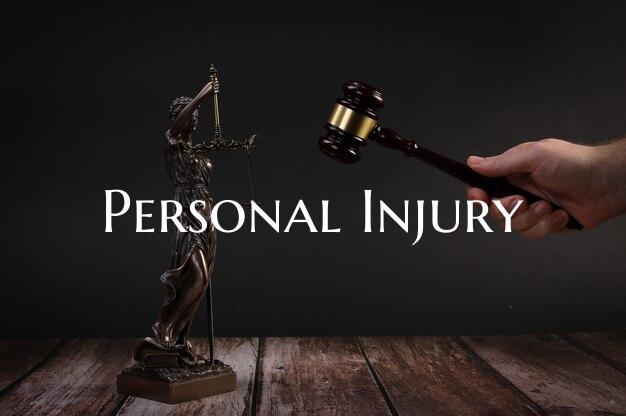
Personal Injury
Introduction: Personal injury cases are legal disputes that arise when an individual suffers harm due to an accident or injury caused by someone else's negligence or intentional actions. These cases can cover a wide range of incidents, from car accidents and slip and falls to medical malpractice and product defects. Understanding personal injury claims and the compensation available to victims is essential for those who have been injured and are seeking legal recourse.
Types of Personal Injury Cases: 1. Car Accidents: One of the most common causes of personal injury claims, car accidents can result in injuries ranging from minor whiplash to catastrophic injuries and fatalities.
2. Slip and Fall Accidents: Property owners have a duty to maintain safe premises, and if someone is injured due to a slip and fall on their property, the owner may be held liable for the damages.
3. Medical Malpractice: When healthcare professionals fail to provide the standard level of care, resulting in harm to the patient, a medical malpractice claim can be pursued.
4. Product Liability: If a defective product causes harm to a consumer, the manufacturer, distributor, or retailer may be held liable for the injuries sustained.
5. Workplace Accidents: Employees who are injured on the job may be eligible for workers' compensation benefits, but in cases of employer negligence, a personal injury claim can also be pursued.
Compensation in Personal Injury Cases: Compensation in personal injury cases, also known as damages, aims to help the victim recover from the physical, emotional, and financial losses incurred due to the injury. Some common types of compensation include:
1. Medical Expenses: Reimbursement for past and future medical bills related to the injury, including hospital stays, surgeries, rehabilitation, and medications.
2. Lost Wages: Compensation for the income lost due to the injury, including any future earning capacity that may be affected by the injury.
3. Pain and Suffering: Non-economic damages for the physical pain, emotional distress, and mental anguish caused by the injury.
4. Property Damage: Compensation for any personal property damaged in the accident, such as a vehicle in a car crash.
5. Punitive Damages: In cases of extreme negligence or intentional misconduct, punitive damages may be awarded to punish the wrongdoer and deter similar behavior in the future.
Conclusion: Personal injury claims can be complex and challenging to navigate, especially for those who are dealing with the physical and emotional aftermath of an injury. Seeking the assistance of an experienced personal injury attorney is crucial for understanding your rights, assessing the value of your claim, and pursuing the compensation you deserve. By being informed about personal injury claims and the types of compensation available, you can work towards recovering from your injuries and moving forward with your life.
